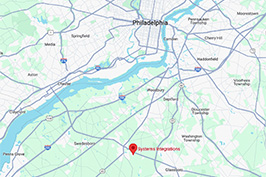Secure Your Home by Enforcing Smart Social Media Sharing Rules
Social media has far exceeded its original purpose of easily connecting friends and family. Now, social networks such as Facebook and Twitter are used for buying and selling goods, sending and responding to event invitations, claiming coupons from retailers, and so much more it’s impossible to list
While these features make everyday tasks easier, this innocent exchange of information could pose a major security risk to your home. Here are a few tips from Systems Integrations that can help you protect your home from online predators.
Peruse your profile
Many social networks encourage you to share personal details including your phone number, city and home address, but that doesn’t mean you should. To thwart burglary threats, avoid sharing information in your profiles about where your home is located. You never know what an acquaintance might do with that type of knowledge.
It’s also important to lock down your privacy settings so that your updates are private and can only be seen by individuals on your friends list. It’s also a good practice to regularly examine your friends list and remove anyone with whom you are no longer in contact.
Keep your whereabouts under wraps
Whether it’s down the street or on a beach, when you post your whereabouts publicly you may be doing more than just making your friends jealous. In fact, you are alerting the world that your home is unoccupied and in prime condition for a break-in. Numerous studies have shown that burglaries are often committed when opportunities arise that are too appealing to resist. And for a burglar, what’s more tempting than knowing, without a doubt, that a home is empty and the owners are on a five-day cruise to the Bahamas? Not much.
You can avoid alerting criminals that you’re out of town by refraining from posting updates and photos about your time away until after you have safely made it back home.
Keep your timeline cryptic to criminals
When you get a shiny, new object such as a large flat-screen TV, tablet or computer, your first instinct may be to share your excitement with your friends. But if your idea of spreading the news about your good fortune with close friends includes a post to your social media page, you may want to reconsider.
While your friends may not be cut out for a life of crime, you can’t say the same about the people they associate with online. Should someone you know interact (like, comment, share, reply, retweet, etc.) with your update, their activity could appear along with your original post in a stranger’s news feed. Seeing your post about your brand new laptop in their news feed may be enough for a burglar to start devising a plan to snag your purchase. To avoid putting your possessions at risk, resist the urge to post photos or statuses about your belongings.
Further your protection by installing a security system in your home. Enlist help from a security company that is a member of the Electronic Security Association (ESA) to find an alarm system that fits your lifestyle and budget.
With these smart tips, you can continue connecting with your loved ones online, while maintaining your peace of mind and safety at home.




